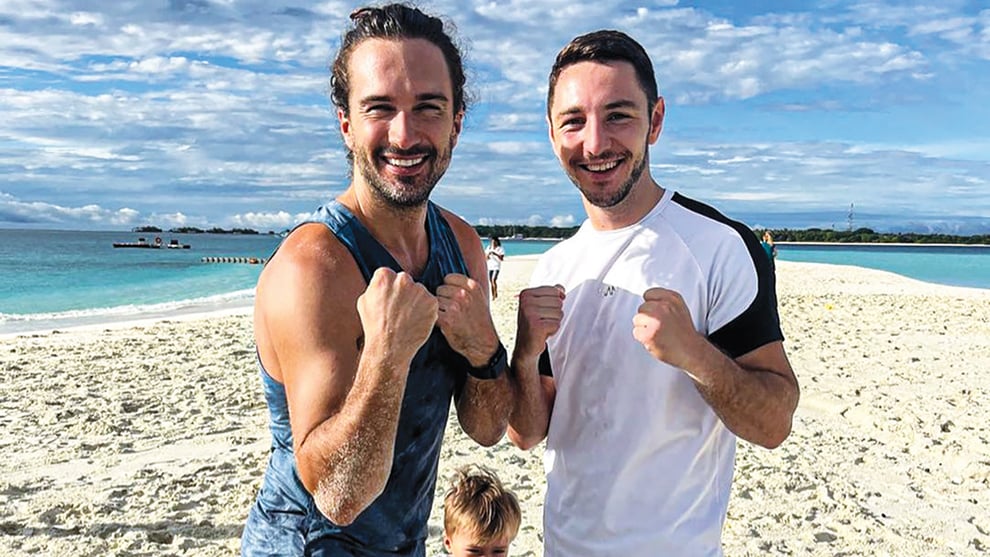While it is frequently stated that the path to success in any domain hinges on the willingness to diligently work in silence, it is more applicable to certain occupations than others.
In the sport of boxing, training alone and perfecting your skills is important, but eventually, having an audience becomes necessary. It serves as validation for putting your life at risk in a sport that has the potential to harm as much as it can benefit. Without an audience, pursuing a career as a professional boxer is, at best, a risky and misguided pastime, and at worst, resembles a form of self-inflicted pain.
There is absolutely no logic in persisting to cause harm to others or endure pain if there is no financial gain involved. This is not a mere game or a way to kill time. In reality, engaging in a silent battle or fighting in an empty room is utterly pointless and serves no purpose whatsoever.
Most boxers on the small-hall circuit will soon become aware of this, of course. It’s why in fact many of them give it a go at first and decide in the process whether they are (a) good enough to become prospects capable of attracting the attention of major promoters or (b) prepared to make a decent but, more importantly, consistent wage as journeymen in the away corner. These two options, for a small-hall boxer, are really the only ones in this day and age, for anything in between represents a danger; a risk likely to backfire and bring the boxer none of the rewards they hoped for and presumably need.
There are those who unfortunately learn this lesson in a difficult manner, only after it’s too late. On the other hand, individuals like welterweight Dan Morley understand from the start that boxing entails more than simply showing up and throwing punches. They comprehend the importance of laying a solid groundwork to fully capitalize on all potential opportunities.
With a professional record of 9-0, Morley acknowledges that his career has been filled with starts and stops. Both his own indecisiveness and the Covid-19 pandemic have greatly affected his journey as a professional, resulting in a sporadic fight schedule of no more than three bouts per year in 2018. Additionally, he recently took a two-year hiatus from the sport.
He reflected on his time in the wilderness, admitting, “Leaving completely was never my intention. I had reached the limits of my patience and knew I needed a change. Stepping back was meant to be a brief six-month hiatus, but it surprisingly stretched into a year or even a year and a half before the thought of returning crossed my mind.”
“After defeating (Louis) Isaacs in an intense fight in 2021, I had high hopes of advancing in my career. However, unfortunate circumstances unfolded during that period. Prior to the Covid outbreak, I had participated in six fights within 18 months. Unfortunately, the pandemic forced a two-year hiatus, disrupting my momentum. Despite breaking my hand while boxing Isaacs and facing setbacks, I had received promising offers from prominent promoters, which gave me hope for a breakthrough. Eventually, I received a contract offer, but it required waiting an additional six months before stepping into the ring. Unfortunately, the person who extended the offer parted ways with the company, resulting in me being dropped once again. I ended up participating in a show for a mere 500 pounds, only to never hear from them again.”
“I was unable to achieve the desired income, as I began experiencing a series of injuries, including broken noses and hands. I simply needed a much-needed break from it all.”
Morley, like many others, was discovering the harsh reality of his pursuit. He came to understand that in order to have even the slightest chance in the sport, he must train with the same dedication as a champion, regardless of lacking the financial rewards, prestigious reputation, or advantageous opportunities that champions enjoy. This realization often proves enough to shatter the spirit of any aspiring boxer.
He confessed, “Prior to reaching a state of complete exhaustion, I used to engage in intense sparring sessions with esteemed fighters like Josh Kelly, Harlem Eubank, Mick Conlan, and Abass Baraou, doing so consistently week after week. This routine persisted for a span of two years, during which boxing consumed every aspect of my life. I even joined them in arduous hill runs every weekend. Although the experience was invaluable, the absence of monetary compensation took a toll on me. Gradually, my disdain for boxing began to grow.”
Upon my return, I made a vow to avoid finding myself in that predicament again. If circumstances demand it, I will commit to rigorous eight-week sessions while ensuring I maintain a consistent presence at the gym. However, I also intend to strike a balance in my life. If I desire to take a break and savor my existence, I will allocate a few weeks for that as well. During that phase, my mindset revolved around rushing through the upcoming six or seven years to simply complete the task at hand. Recognizing the detrimental nature of such thinking, I acknowledge that it is an unhealthy state to be in.
“I’m not getting any fights, I’m always getting let down by promoters, and it felt like Groundhog Day for me. The other guys in the gym would train like that and then have a big fight at the end of it, and win a title, and earn big money. But it wasn’t like that for me. I never had the payoff or the break.”
Despite being relatively unknown in the boxing world, 27-year-old Morley has managed to amass a significant following online during his time away from the sport. With 212,000 followers on Instagram and 199,000 followers with 6.3 million likes on TikTok, Morley recognized the importance of establishing a strong online presence to succeed in his boxing career. Instead of resorting to popular tactics like promoting explicit content, selling CBD oil, or spreading conspiracy theories, Morley took a refreshing and somewhat old-school approach to gain followers. This strategy proved successful as he returned to the boxing ring last Saturday, July 6.
He clarified, “In order for me to return to boxing, I couldn’t continue with my previous approach. Although I had a few sponsors, it was essentially a struggle to make ends meet, relying solely on the possibility of a significant opportunity presenting itself. I simply couldn’t sustain myself in that manner since I had no finances whatsoever.”
“So, I started working in a few gyms, started doing the personal training, and I really started making the boxing videos on social media. The idea was to get that to a place where I would start getting a following and getting opportunities off the back of it; punditry or whatever else. I started meticulously doing those videos. I wasn’t earning money from them, but I’d clip the footage, put the footage together, and do the voiceover. I’d do four videos a day and that would take four or five hours a day. The idea was to get a following and then have people a bit more interested in me when I decided to come back.
When I first joined TikTok and Instagram, I followed numerous boxing pages, but I had no idea how to gain a social media following. My barber suggested that I create a TikTok centered around boxing, but unfortunately, it didn’t gain much attention. It was simply me sharing videos of myself boxing. However, I soon realized that creating videos about different boxing styles, fighters, and eras attracted more viewers on TikTok. If you manage to strike a chord with viewers, your content can easily go viral. For instance, my video showcasing the Cuban boxing style received around 750,000 views, while the one discussing the Soviet style reached a million views. By consistently promoting my content, I began appearing more frequently in the algorithm, which had a ripple effect, boosting my visibility.

Dan Morley with Joe Wicks
In addition to the social media push, Morley diversified his talents by exploring lucrative opportunities in the world of personal training. This had him working in places like the Maldives and Switzerland and rubbing shoulders with the likes of Millie Bobby Brown of Stranger Things fame, fitness coach Joe Wicks, and rugby player Jason Robinson. Doors, naturally, soon started to open for Morley and it was no surprise that when he announced his “return” to the ring the interest in this fight – a six-rounder against 2-9 journeyman Connor Meanwell at Indigo at The O2 – was considerably greater than it had been for any of his previous fights.
“The response has been incredible,” exclaimed Morley, reflecting on his victory over Meanwell through a powerful body shot in the first round. “Although Meanwell was just a journeyman with a 2-9 record, it was a well-fought match. However, not many people are aware of my previous fight against Isaacs, which was one of the best fights that year. Unfortunately, I didn’t earn any money from it. Surprisingly, many thought my recent fight was my debut, but I already have a ‘Fight of the Year’ contender under my belt. This highlights the importance of marketing oneself and gaining exposure. Those 45 seconds of the fight garnered the most attention I’ve ever received. Despite having 13 years of experience in this sport, people believe I’m just starting out.”
Morley’s perspective on his pro boxing career has shifted significantly as he has established a solid foundation and a platform to showcase his skills. He envisions more lucrative opportunities and the possibility of earning titles, and realizes that the responsibility to prove his worth will soon fall squarely on his shoulders. This realization encapsulates the ultimate dream of every boxer: understanding that genuine success is not contingent on marketability or self-promotion, but solely on one’s ability and talent.
Morley expressed his confidence in his abilities as a fighter, having sparred with skilled opponents and consistently holding his ground. Despite others perceiving him as lacking confidence, he aspires to achieve a career similar to the legendary fighters he studies in his videos. His ambition is to have numerous fights, particularly noteworthy ones, and secure titles. Setting his sights on winning an English title next year, he also aims to triumph in the British and European titles thereafter. Recognizing the competitiveness of his division, he eagerly anticipates the opportunity to face formidable opponents like Jaron Ennis or Terence Crawford in the future. As long as he remains active and continues to test his limits, he believes that titles will naturally follow.
Dan Morley is aware that he will be followed no matter what unfolds in the future.
